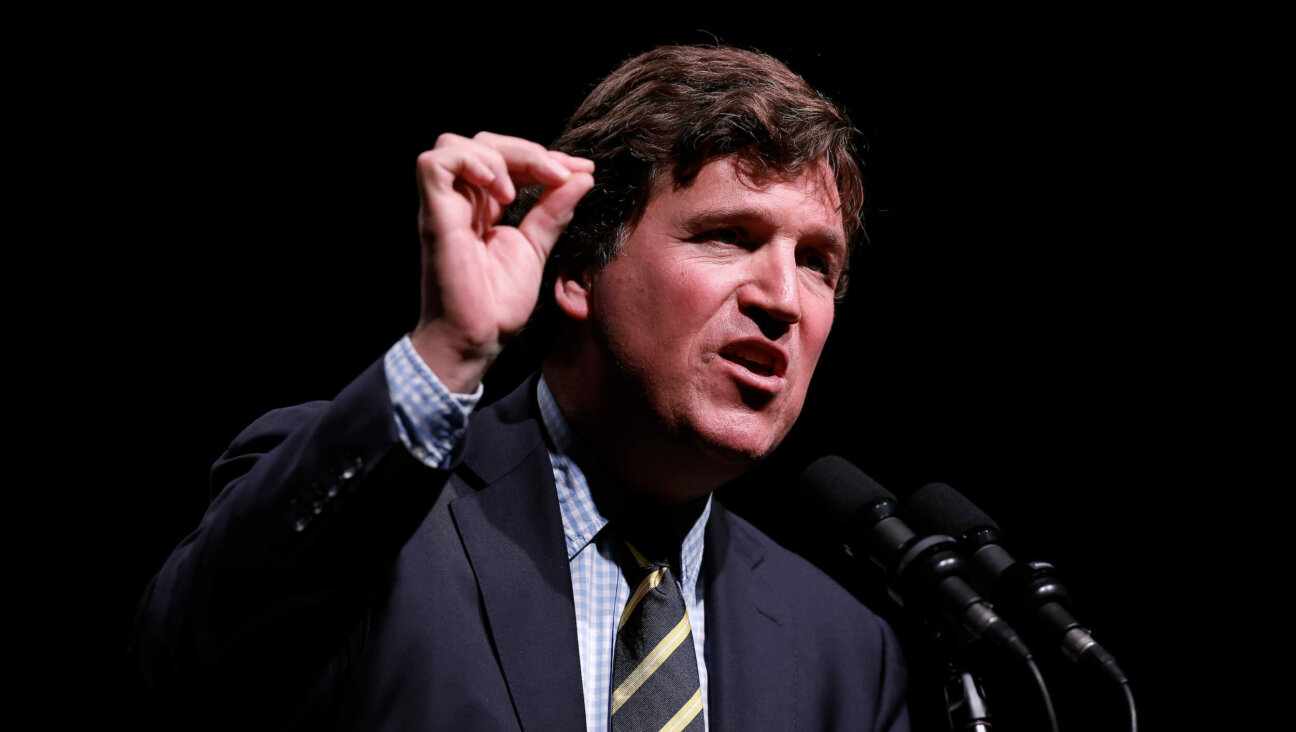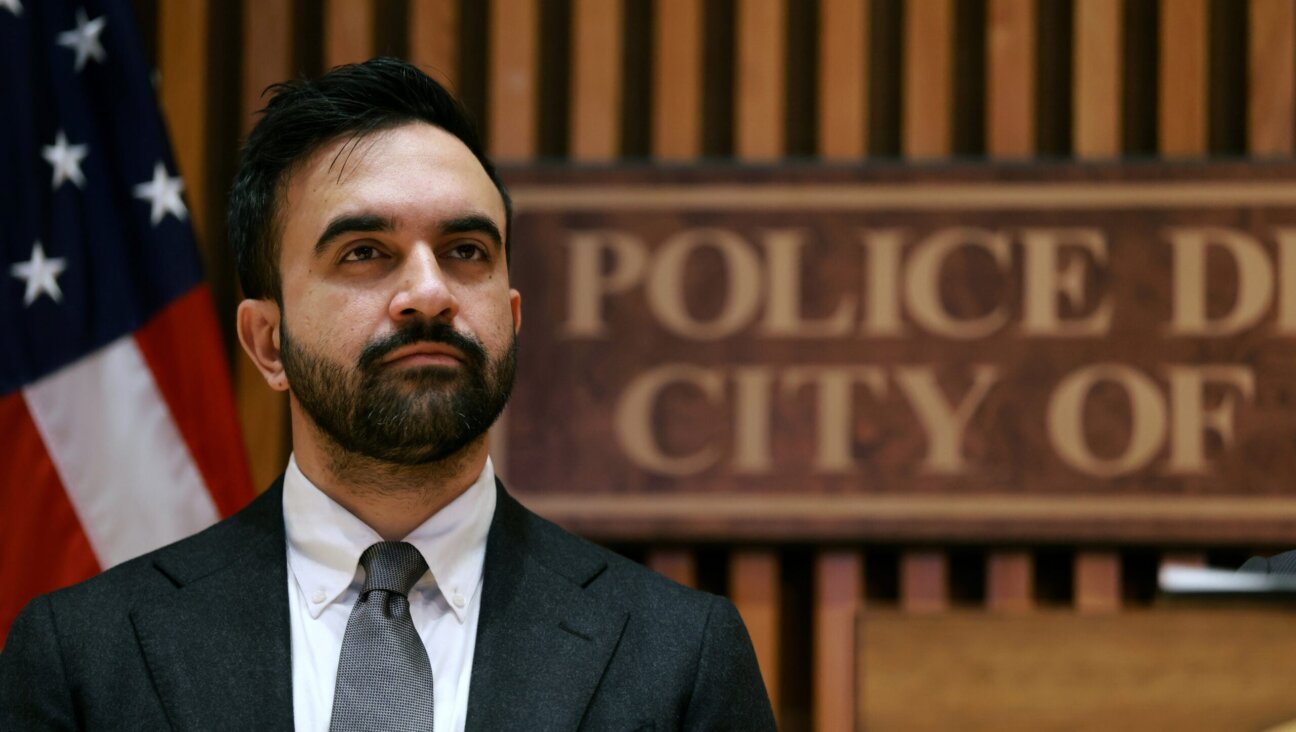Just Who Was Daniel Pearl?
Asra Nomani should have loved “A Mighty Heart,” the new feature film about journalist Daniel Pearl’s abduction and murder in Pakistan five years ago. Pearl’s onetime Wall Street Journal colleague was, after all, a consultant on the film and a central player in the story itself. It was her Karachi home that became the headquarters for the weeks-long search that forms the movie’s spine. But despite the fact that Nomani was given a say about a host of small details — right down to the kind of notebooks the film’s reporters used as props — the final product didn’t sit well with her.
“I just don’t believe in the movie and the mythology of its marketing and PR campaign,” she wrote to one of the producers. (Her e-mail was later reprinted on the Web site Gawker.com.) “As much as the talking points say that this movie is for Danny and that everyone made the movie for the right reasons, I don’t at all feel that it is for Danny or that noble intentions underl[ie] this movie.”
With A-list director Michael Winterbottom at its helm, and mega-watt star Angelina Jolie playing the role of Pearl’s six-months-pregnant wife, Mariane, “A Mighty Heart” is easily the biggest Pearl tribute to date, but it is hardly the first. In the years since Pearl was slain, countless awards, fellowships, lectures, dialogues and even musical compositions have been named for him — all, ostensibly, dedicated to furthering his legacy; all, presumably, “for Danny.” In the process, Pearl, like Alfred Dreyfus before him, has become a Jew who, because of a peculiar intersection of history and biography, has been transformed into something larger than himself: the stuff of myth, an icon. He has become infinitely meaningful — indeed, capable of representing conflicting meanings. He has been invoked as an ambassador of peace and a justification for war, a proud Jew and a humanist who saw beyond religious particularism, an ordinary man and a holy martyr. (In an unprecedented move, the Miami Holocaust Memorial recently added Pearl’s name to the 30,000 etched on its memorial wall — the first non-victim of the Shoah to be so remembered.)
Can a single person’s memory bear the weight of so much significance?
Those who knew Pearl have responded to his growing legacy in varying ways. For Nomani, the chasm between Pearl the man and Pearl the myth has become too great. For Mariane Pearl, whose memoir served as the basis for the new film, her husband’s memory is something that needs to be guarded against undue sanctification. And for Pearl’s father, Judea, arguably the chief custodian of his son’s legacy, the Daniel he knew and the Daniel of myth are, more often than not, of a piece.
Initially, Mariane Pearl did not want her book turned into a movie. “I just didn’t think it was right,” she recently told Newsweek. She worried that her husband would be made into “a saint.” In interviews, Mariane Pearl, herself a journalist, eschews the language of myth; she doesn’t speak of her husband’s “legacy.” “To me,” she told Newsweek, the film is “a story about Danny being held by extremely intolerant people, and yet we, in that house in Pakistan — Christian, Hindu, Jew, Buddhist, Muslim — came together to find him.”
In her book, too, Mariane Pearl’s focus is on the concrete. Her husband emerges not as larger than life but as flesh and blood. “Danny goes to the most unexpected hairstylists,” she writes, poignantly using the present tense. “The more picturesque the barbershop, the happier Danny is. Most of the time the barbers don’t speak English, but this way one is always assured of a surprising result. This is Danny’s way of facing the world: with trust.”
Mariane Pearl’s approach to her husband’s memory has, in subtle but unmistakable ways, been different from that of Pearl’s parents. In addition to her memoir, she wrote the preface to a collection of his Wall Street Journal articles. Pearl’s parents, meanwhile, released the anthology “I am Jewish,” reflections on Pearl’s last words by a Who’s Who of the Jewish world, and began a foundation “to promote cross-cultural understanding through journalism, music, and innovative communications.”
Reached by phone at home in Los Angeles, Judea Pearl spoke with the Forward about his son’s legacy and some of its seeming paradoxes, beginning with the tension between Daniel the man of peace and Daniel as justification for war.
“He was a bridge builder,” said Pearl, a professor of computer science at UCLA, “who has become an instrument of indictment against radical Islam. It’s not unreasonable that a person who would devote his life to building bridges will become an indictment when his death is perceived to be a betrayal of what he stood for.”
Asked if there was a tension between Daniel the bridge builder and Daniel the Jew, Pearl demurred.
“Universal humanity emanates from personal empathy,” said Pearl, who was born in Tel Aviv in 1936. “Tribalism is stepping stone to universal understanding.”
Unlike Nomani and Mariane, Judea Pearl is comfortable with the language of myth. Indeed, he said, the mythology that has come to envelop his son has only helped bring him more clearly into view.
“The more I go through this, the more I see he was really a great man,” Pearl said. “I’m learning through imagining his reactions. I don’t understand how I missed it in his life. I should have spent more time with him. I should have used him more. I should have learned from him more. The mythology still hasn’t grasped what he really was.”
















